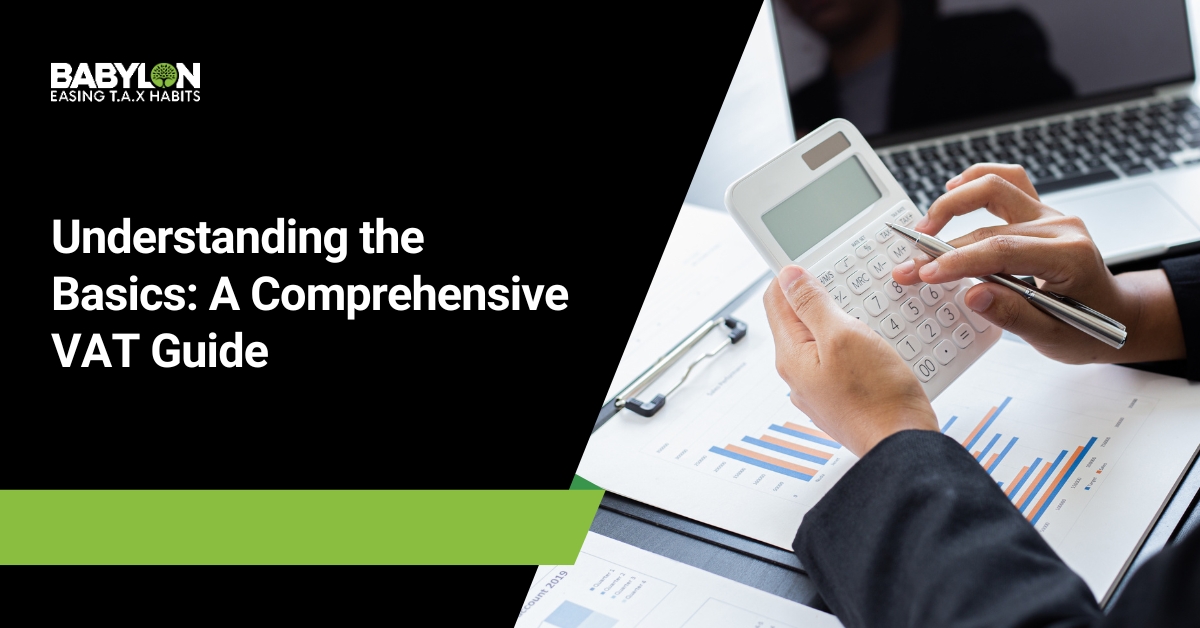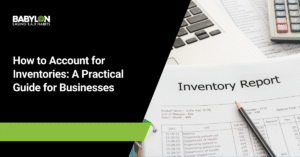If you’re running a business, you’re responsible for managing taxes, and value-added tax (VAT) is no exception.
In the Philippines, VAT regulations are critical for ensuring smooth operations and financial stability. Failing to comply with these regulations can result in hefty fines, legal complications, and disruptions to your business.
In this VAT guide, we’re here to help you in navigating through VAT complexities, providing the knowledge you need to ensure compliance and avoid penalties effectively.
What is VAT?
VAT, known as Value-Added Tax, plays a vital role in the Philippine tax landscape. It encompasses various transactions, including sales, barter, leases, and imports, impacting both businesses and consumers.
Businesses must file VAT returns when their gross sales surpass PHP 3,000,000.00, and VAT regulations also bind individuals involved in importing goods. Taxpayers are likewise required to file VAT returns and pay VAT if they are VAT-registered, regardless of the amount of gross sales. Taxpayers who are non-VAT registered shall likewise be required to file VAT if the gross sales exceed the VAT threshold.
That said, grasping VAT’s fundamentals is crucial for anyone involved in economic activities in the Philippines.
VAT Rates and Categories
Here’s a breakdown of the Philippine VAT rates and categories applicable to different transactions:
| VAT Category | VAT Rate | Description |
| Sale of Goods or Properties | 12% | Applies to the gross selling price of goods or properties sold, bartered, or exchanged |
| Sale of Services or Lease of Properties | 12% | Applies to gross receipts from service sales or exchanges, including property leasing or usage |
| Importation of Goods | 12% | Determined based on the total value the Bureau of Customs uses, including tariffs, customs duties, excise taxes, and other charges. |
| Export Sales and Zero-Rated Sales | 0% | Applicable to export sales and other zero-rated sales |
Source: Bureau of Internal Revenue
Who Needs to Register for VAT?
The following are required to register for VAT:
- Businesses engaged in trade or business in the Philippines
- Any person/entity with gross sales or receipts exceeding PHP 3 million annually or when there are reasonable grounds to believe that its gross sales or receipts for the next 12 months, other than those exempt under Section 109 of the NIRC, will exceed PHP 3 million
- Those involved in selling, bartering, exchanging, leasing goods or properties, and providing VAT-subject services
- Any person importing goods, regardless of their business activities
- A person required to register as a VAT taxpayer but failed to register
Registration Process and Requirements
The registration process offers mandatory and voluntary options determined by your business’s yearly sales. Non-resident businesses, however, can’t directly register for VAT.
Mandatory Registration
VAT registration becomes obligatory if your business sales exceed PHP 3 million annually in the Philippines. However, if you wish to register voluntarily, you also have that option available. This process involves completing either BIR forms 1903 or 1905 and submitting them to your local Revenue District Office to acquire a tax identification number (TIN).
Non-Resident Businesses
It’s crucial to understand that non-resident businesses cannot register for VAT in the Philippines. Instead, customers engaging in transactions with non-resident businesses will be responsible for withholding and accounting for any VAT due. Adhering to these registration requirements is essential to maintain smooth business operations and ensure compliance with tax regulations.
Deadline for VAT Registration
When registering for VAT, it’s crucial to understand the filing deadlines associated with different BIR forms:
| BIR Form | Form Name | Filing Period |
| 2550M | Monthly VAT Declaration | Based on RMC No. 52-2023, there is no prescribed deadline, as it is optional for VAT-registered persons. |
| 2550Q | Quarterly VAT Return | Due by the 25th day after the quarter ends |
Source: Bureau of Internal Revenue
What are VAT Input and Output?
In VAT, “output tax” is the VAT due on sales, leases, or exchanges of taxable goods or services by any person who is registered or required under Sec. 236 of the NIRC. On the other hand, “input tax” is the VAT you pay on imported or locally purchased goods, properties, or services for your business, including the lease or use of the property from a VAT-registered person. It also covers transitional, presumptive, and deferred input tax.
Understanding these terms is vital as they determine your VAT obligations and credits in business transactions.
What are VAT Exemptions and Special Schemes?
Understanding VAT exemptions and special schemes is crucial because they lighten the tax load for business owners in certain sectors and impact pricing strategies.
Exemptions include:
- Companies with actual gross sales or receipts under PHP 3 million
- Specific business activities and transactions falling under SEC 109 of the NIRC, including the sale of goods or specific services
- Essential items like agricultural and marine products in their original state, tuition fees, real estate, books, and transportation
VAT Compliance and Record-Keeping
Ensuring VAT compliance and accurate record-keeping is vital for your business. It helps you avoid penalties and builds trust with tax authorities. Proper records track finances effectively, aiding tax reporting and audits. Overall, prioritizing VAT compliance and record-keeping safeguards your business’s financial integrity and promotes smooth operations.
How to File and Pay for VAT Returns in 3 Steps
Here are the three steps for filing and paying VAT, applicable to both monthly and quarterly VAT returns:
- File with an Authorized Agent Bank (AAB)
With RA No. 11976, the return shall be filed with AAB, RDO, through the Revenue Collection Officer or authorized tax software provider. These banks are authorized to process VAT payments and filings for businesses in your jurisdiction.
- Pay the Fees
After filing, make sure to pay the total amount due at the same AAB. You can settle the fees either in cash or electronically. Make sure to keep the receipt, which you may need for future reference.
- Keep Your Deposit Slip
After paying, make sure to get a machine-validated deposit slip as proof of your payment transaction. This slip serves as evidence that you’ve completed the payment process.
What are the Consequences of Non-Compliance?
It’s crucial for businesses to understand the consequences of not following VAT regulations to avoid penalties and legal problems. Below is a table summarizing the penalties for late filing or payment of VAT returns:
| Type of Non-Compliance | Penalty | Circumstances |
| Late Filing with Tax Due to be Paid | Surcharge | Failure to file and pay the full or part of the amount on time |
| Interest | Unpaid tax amount | |
| Compromise penalty | Willful neglect or false information | |
| Late Filing with No Tax Due to Pay | Compromise penalty | Willful neglect or false information |
| Late Filing of Statements/Reports | Compromise penalty | Willful neglect or violation of regulations |
General VAT Queries
What is the liability of a taxpayer who did not register but is liable to VAT?
If one fails to register, he shall be liable to pay the output tax as if he were a VAT-registered person, but without the benefit of input tax credits for the period in which he was not properly registered. Based on this provision, such output tax cannot be passed on to the buyer of services as the latter’s input VAT. It is the seller of service’s responsibility to shoulder the output VAT due on such transaction absent registration as a VAT taxpayer and supporting VAT official receipt issued to the customer. This stems from the fact that the buyer of services shall have no support in claiming input VAT from the purchase of services since no VAT-registered official receipt has been issued to support such claim of input VAT.
Can a VAT-registered person cancel his VAT registration?
Yes, a VAT-registered individual can cancel their VAT registration under specific conditions. They need to adhere to the procedures provided by tax authorities and clear any remaining VAT dues before proceeding with the cancellation.
What invoice/receipt requirements must a person registered for VAT meet?
A person registered for VAT needs to provide a VAT invoice for every sale of goods or services, which is compliant with the invoice requirements under Sec. 113 of the National Internal Revenue Code (NIRC). For example, if a bakery sells bread to a customer, they must issue a VAT invoice detailing the sale amount and applicable taxes. This ensures compliance with VAT regulations and proper record-keeping.
Which transactions fit the definition of “zero-rated sales”?
“Zero-rated sales” include transactions subject to VAT but taxed at a 0% rate. These transactions cover exports, sales to economic zones, and those specified by law to have no VAT.
What is a VAT-exempt sale?
According to Sec. 109 of the NIRC, a “VAT-exempt sale” pertains to transactions not subject to VAT. Common examples encompass sales of items such as agricultural products, educational services, and medical services.
Which transactions are exempt from VAT?
Certain transactions are exempt from VAT, falling into specific categories outlined by tax regulations. Examples include certain financial services, residential leases, and educational services. Unlike zero-rated or standard-rated transactions, these are not subject to VAT.
Simplify VAT Compliance with Babylon2k
Understanding Value-Added Tax (VAT) in the Philippines is vital for businesses to follow the rules and avoid financial risks. By adhering to VAT regulations, businesses maintain financial integrity and avoid penalties. With a solid grasp of VAT basics, navigating the Philippine tax system becomes easier.
For expert VAT guidance, trust us at Babylon2k. We specialize in tax services tailored to businesses of all sizes and sectors, including maximizing VAT refund opportunities. Request a quote today to discover how we can help you. Whether you’re a startup or a large corporation, we ensure VAT compliance and smooth operations.
Message our AI chatbot today and let our team guide you through the complexities of VAT, ensuring your business stays on track and avoids costly pitfalls. You can also reach us at [email protected] or through Viber/WhatsApp at +63-927-945-3382.
With Babylon2k’s expertise, you can rest assured that your VAT matters are handled precisely and efficiently, allowing you to focus on growing your business confidently.






